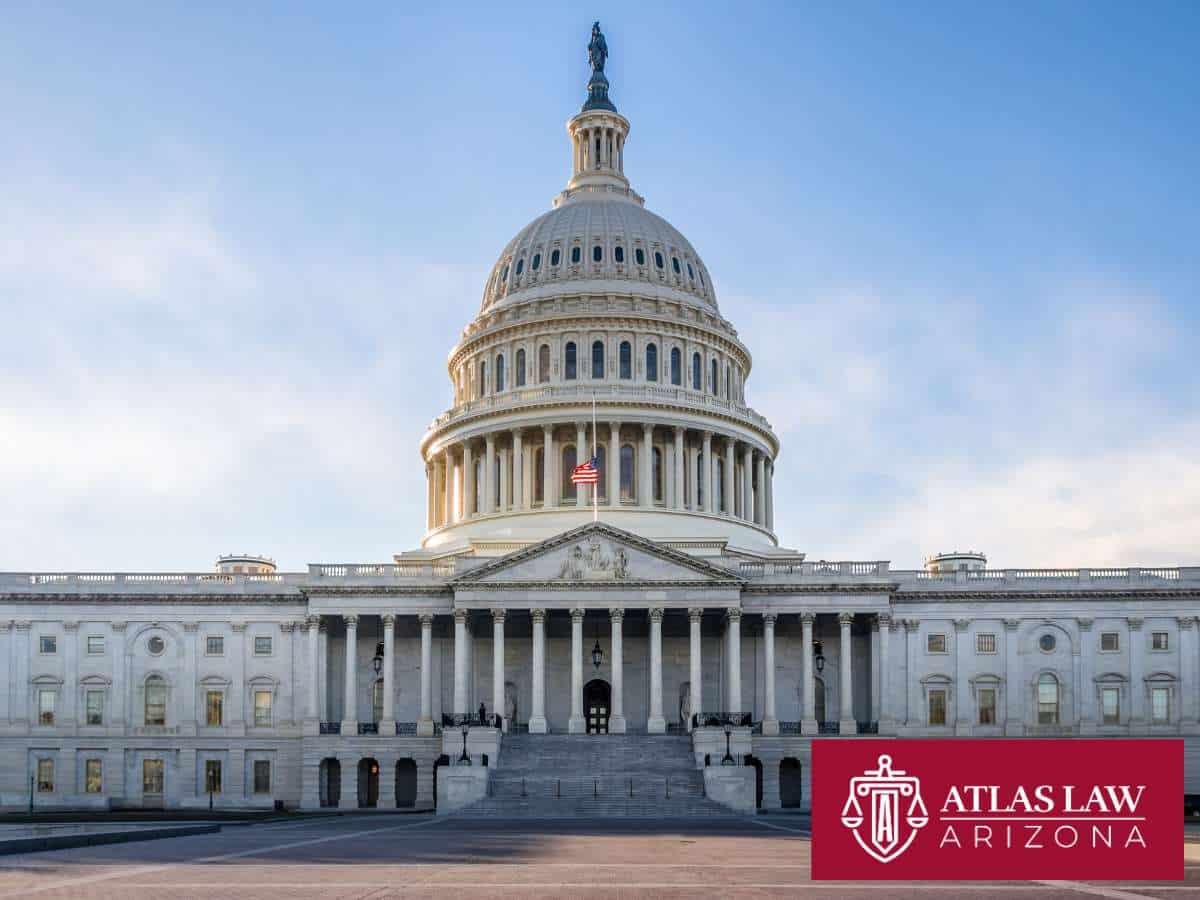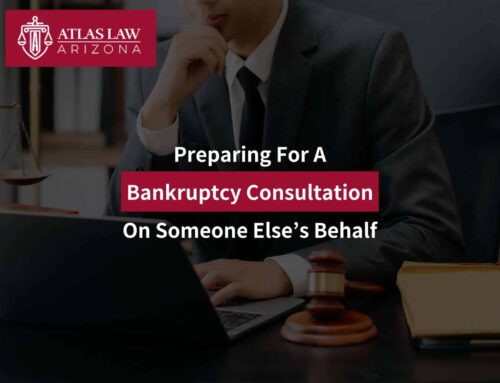Government shutdowns, and the threat of them, seem to become increasingly common occurrences. This phenomenon likely won’t end any time soon with the current political climate in the United States. Government shutdowns affect regular citizens in a wide variety of ways, including financially. They impact many workers’ incomes, and a government shutdown can raise concerns about delays in certain legal procedures. If you were considering a legal matter, such as a bankruptcy, you may have questions about the effect a government shutdown will have on your case. Don’t make assumptions that could limit how effective bankruptcy is for your financial situation. Our firm makes it easy to clear up any confusion about the bankruptcy process in Arizona by offering free consultations by phone. Schedule your free appointment to speak with a team member from Atlas Bankruptcy Lawyers today by calling 602-649-4949.

Does The Government Shutdown Stop Bankruptcy Courts?
A federal government shutdown occurs when Congress and the President of the United States fail to reach an agreement on a government budget. The current government shutdown started on October 1, 2025, and there are reserves to continue paying federal expenses until October 17, 2025. While bankruptcy laws vary by state, cases are held in specialized federal courts. As of now, bankruptcy courts have been unaffected by the current government shutdown. However, bankruptcy courts are specifically designated as part of the Congressional Appropriations budget. There are approximately 345 federal bankruptcy judges across the country. By law, bankruptcy judges are paid 92% the rate of district judges. In 2025, federal district judges received a salary of $247,400 per year, meaning bankruptcy judges are paid $227,608 per year. Multiplied by 345 bankruptcy judges nationwide, and the United States government spends $78,524,760 per year on bankruptcy judge salaries alone. This doesn’t include other staff, benefits, and other costs of operating a federal court. Therefore, it’s not unreasonable to be wary of potential bankruptcy court delays in the future if the government shutdown doesn’t end soon.
Time To Prepare a Bankruptcy Petition
A bankruptcy petition is a lengthy legal document that requires detailed information about the debtor’s finances. It isn’t uncommon for a bankruptcy petition to be well over 50 pages long. It is composed of multiple parts, such as the creditor mailing matrix, or a mailing list to alert all of the debtor’s creditors of their bankruptcy filing, a statement of financial affairs, and schedules. Schedules are the different sections of a petition detailing the debtors’ financial situation. The schedules that a debtor must complete for their bankruptcy petition include:
- Schedule A/B: Property (individuals)
- Schedule C: Exempt property
- Schedule D: Creditors who hold claims secured by property
- Schedule E/F: Creditors who have unsecured claims
- Schedule G: Executory contracts and unexpired leases
- Schedule H: Codebtors
- Schedule I: Income
- Schedule J: Expenses
Gathering all the required documents and using them to accurately fill out a bankruptcy petition can be a lengthy process. Unless a debtor has all of their financial documents readily available, it could take weeks, or even months, to fully prepare a bankruptcy petition for filing. If a federal employee is losing income due to the government shutdown, they can use this time to start preparing to declare bankruptcy. This will allow them to time their filing to maximize efficiency, protect nonexempt income, and more. Want to start preparing your bankruptcy filing in Phoenix or Tucson in advance? Atlas Bankruptcy Lawyers offers competitive payment plan options and free consultations by phone. Get scheduled today at 602-649-4949 to learn more.
Loss Of Income During a Government Shutdown
Several different groups of people are at risk of going without a paycheck during a government shutdown. During a shutdown, many federal employees are placed on furlough, a temporary leave from work without pay. Some employees are even required to continue their work duties without pay. Others are legally exempt or “excepted” from furlough programs- these are typically federal employees tasked with protecting life or property. Police officers, air traffic controllers, etc., meet this standard and continue working through a government shutdown. Some federal employees are funded by sources that aren’t affected by Congress budgeting, so they don’t have to be furloughed during a government shutdown.
Federal employees are supposed to receive backpay when a furlough period ends, although President Donald Trump has threatened to rescind backpay for certain federal employees. So if a furloughed federal employee doesn’t have another source of financial support, they could be in serious trouble when the government shutdown ends. If they don’t have savings, another earner in the household, etc., there’s a good chance they will have to rely on lines of credit to pay for expenses during the shutdown. And if that person doesn’t have a paycheck coming at the end of the shutdown like they expected, that debt will start accruing interest at a high rate.
When credit cards, personal loans, and other sources of debt become unmanageable, the situation can spiral quickly. If a creditor repossesses a vehicle, the borrower might be late to work, lose their job, and fall even deeper into debt. If a creditor obtains a judgment against a debtor and garnishes their wages, that debtor might fall behind on their other payments and face other methods of collection. Before this all progresses to absolute devastation, a person struggling with debt can pause the cycle by filing for bankruptcy. Filing for bankruptcy triggers the automatic stay. The automatic stay prevents creditors from pursuing the debtor in almost any fashion, whether that’s through asset repossession, debt collection lawsuits, wage garnishments, and more. Without special permission from the court, creditors are barred from collection efforts until the case is either dismissed or discharged, at which point the debt may be cleared and the creditor no longer has cause for action.
If you’ve experienced job loss or a period of reduced income, you may be stressed about your finances. If you have more debt than you can realistically repay, it may be time to learn more about the bankruptcy process. Our firm offers free consultations by phone and payment plan options starting at Zero Dollars Down. Schedule your free appointment to discuss your financial situation in depth with Atlas Bankruptcy Lawyers today at 602-649-4949.
Government Shutdown Concerns Threatening Your Financial Situation? Learn More About Bankruptcy Today.
A government shutdown, and a furlough period without pay, doesn’t just affect federal employees. It also affects landlords and businesses that rely on those federal employees having income to spend. If the shutdown persists for too long, it will wreak havoc on our court systems, and could eventually impact bankruptcy courts. This is just another reason to pursue debt relief with guidance from an experienced professional bankruptcy lawyer in Arizona. There are endless factors that can complicate either chapter 7 bankruptcy or chapter 13 bankruptcy, but an attorney who has been practicing for years will know how to handle these types of obstacles. Our staff is dedicated to putting our years of experience to work helping our clients live happier and less stressful lives. We offer flexible payment plan options, allowing you to file for Zero Dollars Down bankruptcy with 0% interest. Learn more with your free consultation today at 602-649-4949.


